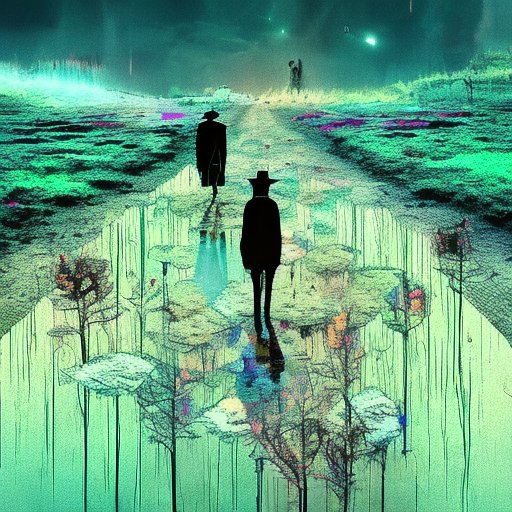One-line Summary:
Waiting for Godot is a thought-provoking play that explores the themes of existentialism, the human condition, and the nature of time through the repetitive and absurd encounters of two characters waiting for someone who never arrives.
Introduction:
Waiting for Godot, written by Samuel Beckett, is a play that premiered in 1953 and has since become a classic of modern literature. Set in a desolate landscape, the play follows the lives of two characters, Vladimir and Estragon, as they wait for the enigmatic figure of Godot. As they pass the time, they engage in philosophical discussions, engage in comedic banter, and encounter various other characters who offer glimpses into the human condition. Through its repetitive and absurd nature, Waiting for Godot explores existential themes, the futility of human existence, and the concept of time.
The Absurdity of Existence:
Waiting for Godot is often associated with the Theatre of the Absurd, a theatrical movement that emerged in the 1950s and focused on the meaninglessness and absurdity of human existence. The play presents a world devoid of purpose, where characters are trapped in a cycle of waiting and uncertainty. Vladimir and Estragon’s existence is characterized by boredom, confusion, and a lack of direction. They constantly ponder the meaning of life and their purpose in the world, but ultimately find no answers. The play highlights the absurdity of human existence and the inherent struggle to find meaning in a seemingly meaningless world.
The Human Condition:
Throughout the play, Beckett explores the complexities of the human condition. Vladimir and Estragon’s interactions reflect the universal desire for companionship and the need for human connection. Their reliance on each other for support and entertainment demonstrates the importance of relationships in navigating the challenges of life. Additionally, the play delves into themes of loneliness, despair, and the fear of death. The characters’ constant waiting for Godot can be interpreted as a metaphor for the human longing for salvation or a higher power to give meaning to their lives.
The Nature of Time:
Time is a central theme in Waiting for Godot. The characters are trapped in a state of perpetual waiting, unsure of how much time has passed or how long they have been waiting for Godot. This uncertainty creates a sense of anxiety and highlights the human struggle to comprehend the passage of time. The cyclical nature of the play, with each act mirroring the other, further emphasizes the repetitive and monotonous nature of existence. The characters’ inability to escape this cycle reflects the timeless nature of their predicament and the universal experience of being trapped in the present moment.
Key Takeaways:
- Waiting for Godot is a play that explores existential themes, the human condition, and the nature of time.
- The play presents a world devoid of purpose, highlighting the absurdity of human existence.
- It delves into the complexities of the human condition, emphasizing the importance of relationships and the universal longing for meaning.
- Time is a central theme, with the characters trapped in a state of perpetual waiting and uncertainty.
- Waiting for Godot serves as a reflection on the human experience, inviting audiences to contemplate the meaning of life and the passage of time.
“Let’s go.” “We can’t.” “Why not?” “We’re waiting for Godot.”
Waiting for Godot is a thought-provoking play that challenges conventional notions of storytelling and invites audiences to question the meaning of life, the nature of existence, and the passage of time. Through its absurd and repetitive encounters, the play serves as a poignant reflection on the human condition and the universal longing for purpose and connection.












